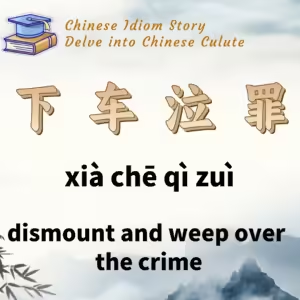
Chinese Idiom: 生不逢辰 (Sheng Bu Feng Chen)
English Translation: Born without encountering favorable times
pīn yīn: shēng bù féng chén
Idiom Meaning: This idiom expresses a lamentation about one’s unfortunate fate or bad luck, suggesting that one’s life has not aligned with good times or opportunities. It reflects a feeling of being born at an inopportune moment.
Historical Source: Book of Songs (《诗经》), specifically from the chapter “Sang Ruo” (《桑柔》).
In the ancient Chinese text Book of Songs, there is a poem titled “Sang Ruo” (桑柔) that conveys deep sorrow and frustration. In its fourth chapter, the author laments the internal strife and external threats facing their country, attributing their misfortune to being born at a bad time. The poem expresses:
“忧心愍愍,念我土宇。 我生不辰,逢天禅怒。 自西徂东,靡所定处。 多我觏瘠,孔棘我圉。”
Translation:
“Heart full of sorrow, reflecting on our land. I was born at an ill-fated time, encountering Heaven’s wrath. From west to east, there is no place of peace. Disasters are numerous, and the borders are in urgent distress.”
The poem mourns the state of the country and the poet’s personal sense of misfortune, as he feels that his life and efforts are overshadowed by the national and personal calamities that he faces. The phrase “生不逢辰” (shēng bù féng chén) later became a general expression for feeling unlucky or unfortunate in one’s circumstances.
This idiom is used to convey a sense of lament over one’s life circumstances or the feeling of being born at a time when favorable opportunities are lacking.






